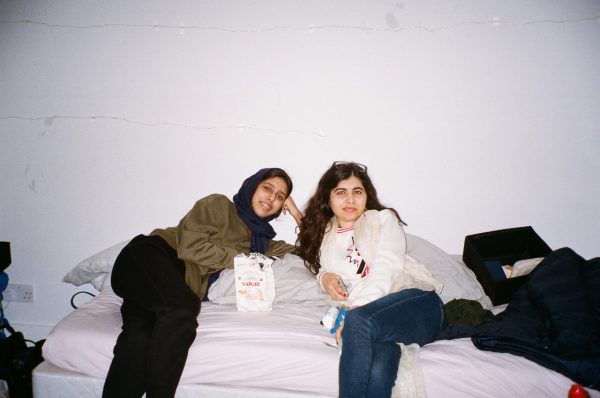
Courtesy of Malala Yousafzai
Malala Yousafzai in Ethiopia. Malala is the youngest person to receive the Nobel Peace Prize laureate at the age of 17.
When Malala Yousafzai arrived at Oxford University in 2017, her goal while in college was simple: to make friends.
At 20, she had survived an assassination attempt by the Taliban, became the youngest-ever Nobel Prize laureate and established herself as one of the most recognized voices for girls’ education in the world.
“I had accepted that when you become an activist at a young age, you are now supposed to change the world,” Yousafzai said in an interview with The Daily Free Press on Tuesday. “I thought it meant you can’t have friends. You can’t be loved.”
In her new memoir, “Finding My Way,” set to be released Oct. 21, Yousafzai peels back the layers of her teenage years, navigating finding her voice outside of her role as a renowned advocate.
Starting college, immersed in a new country and culture, Yousafzai yearned to be the funny, exuberant girl she was before being thrust into the global spotlight.
“I did not hesitate in being vulnerable, because I want [people] to know the true experiences, whether silly or serious or funny or difficult,” she said. “All of these have been a part of me.”
Away from the public eye at Oxford, Yousafzai discovered the aspects of her identity that had been buried under expectations, including a “rebellious side.” She recalled climbing rooftops, chasing after a crush and traipsing through typical college experiences.
“This was the first time I was with people my age, and I learned so much from them, but they also made me feel comfortable in being myself,” she said. “I did not have to think twice about what I said. I could gossip. I could laugh. I could talk about boys. I could talk about star signs.”

During her second year at Oxford, any sense of normalcy was shattered. After smoking marijuana with her friends, she was transported back to the tumultuous moments after the attack that almost killed her.
“I realized that the trauma hadn’t gone anywhere. Maybe I had buried it, but it was there the whole time,” Yousafzai said.
She recalled visceral panic attacks that persisted for months. At the urging of her friends, she sought out therapy for the first time — seven years after the shooting.
Though she had been offered mental health support after her assassination attempt years earlier, she turned it away.
“I sort of rolled my eyes, because I thought questions like ‘How are you feeling today?’ were of no help in my recovery,” she said.
Sharing her mental health journey was the most challenging and cathartic part of writing her memoir, Yousafzai said.
“These are the most personal reflections I have shared, and the most important message for all of us is to be true to ourselves,” she said.
Looking back, she said she wishes she began therapy earlier in her life, a realization that impacts how she views her activism and personal life.
“It started with me telling my own story, and that was my only tool,” she said. “I feel very fortunate that today, I have support from people around the world who are helping me in this mission. I am supporting other education activists right now.”
Yousafzai said she told just a portion of her story in her first book, “I Am Malala,” which was published in 2013 and centered around her attack and transition into activism.
She was only 11 when she began blogging about her experiences under the Taliban regime and advocating for girls’ education rights, which she said “defined” her life.
Yousafzai said she is grateful for her younger self, who inspires her today to remain resilient and focus on the greater goal of making education accessible for every girl. Still, she is eager to paint a more intimate portrait of herself.
“That is the story of a 15-year-old girl who had experienced so little in her life,” she said. “This book is different because it is my story in my own voice, and these are the most personal reflections I have ever shared. This is the Malala beyond the headlines and titles.”